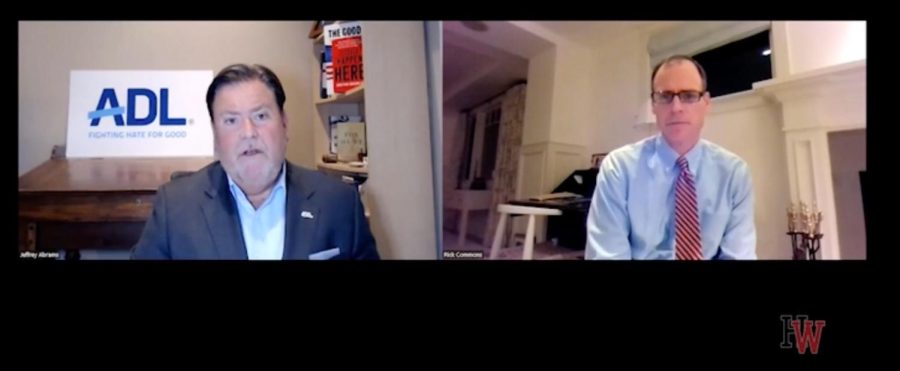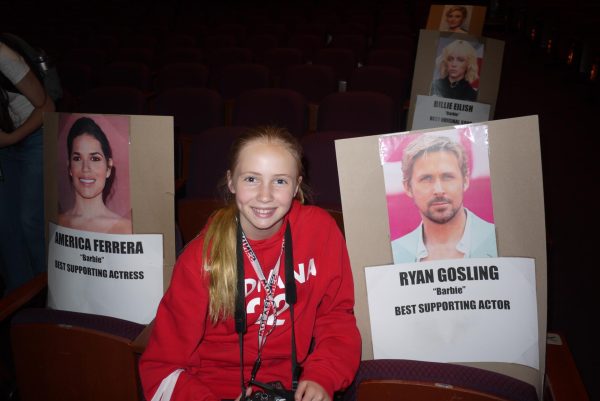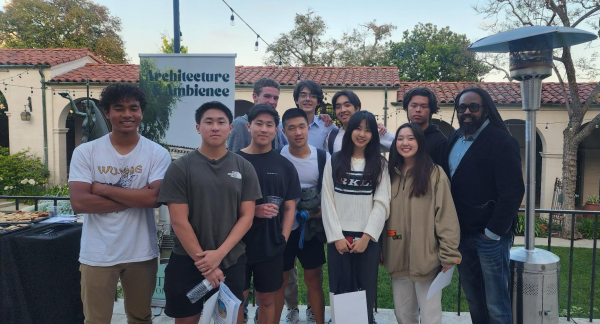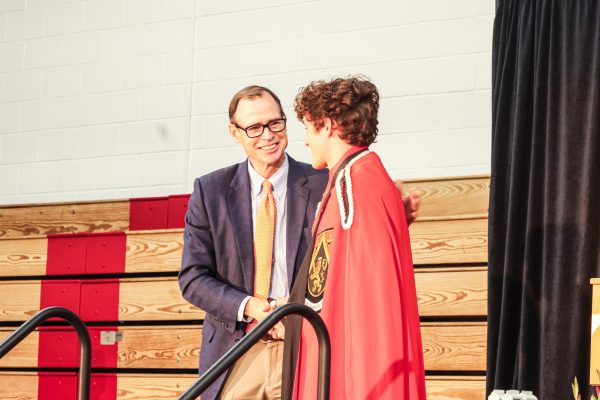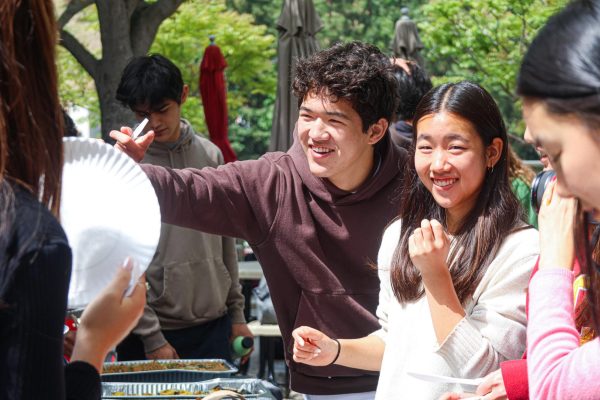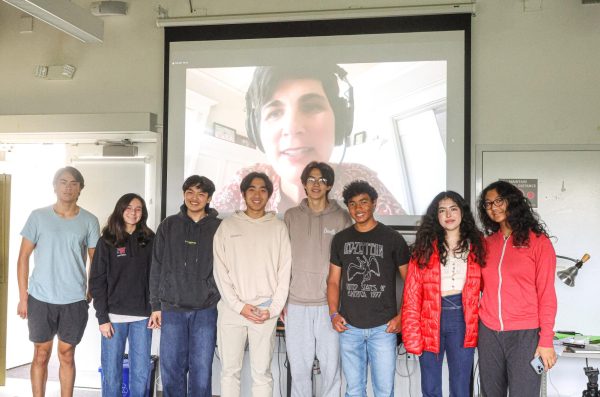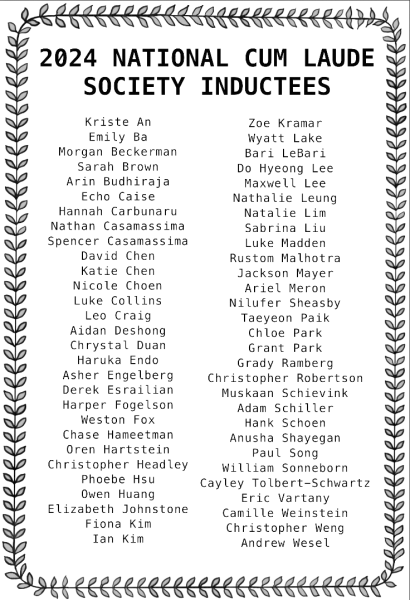Guest Speaker Jeffrey Abrams presents at webinar combatting antisemitism
November 23, 2022
Anti-Defamation League (ADL) Los Angeles Regional Director Jeffrey Abrams spoke at a webinar about the surge of antisemitism in the school community Nov. 14. Abrams’ presentation was part of a larger response to antisemitism at the school after several swastikas and the words “Hitler Rocks!” were found carved into a desk at the upper school Oct. 7.
In hopes to eliminate antisemitism at the school, President Rick Commons said he invited ADL to speak in an effort to educate the community.
“I hope the swastikas carved into the desk were the acts of someone who was ignorant rather than hateful, and I hope that speakers like Mr. Abrams can help to overcome the ignorance,” Commons said.
ADL was founded in 1913 after Leo Frank, a Jewish man, was wrongfully accused of murdering a Christian woman in his factory and subsequently lynched, according to Abrams. In the webinar, which hosted around 150 attendees, Abrams said the ADL aims to create a safe environment for the Jewish people by educating communities about antisemitism.
“Fom the very start, it was an integrated mission to both stop the defamation of the Jewish people and secure justice and fair treatment for all,” Abrams said. “At ADL we believe very strongly that education is the ultimate cure for what we hope for, which is a world without hate.”
Abrams said part of this education includes understanding statistics about antisemitism in America.
“For over 40 years, ADL has conducted a survey of antisemitic incidents in this country,” Abrams said. “Incidents of harassment, vandalism and outright assault. 2021 was the worst year on record, and four of the worst years in the history of this study occurred in the last few years. There were on average seven incidents a day. What is happening, tragically, is antisemitism is becoming more pervasive and more normalized.”
Abrams said that the current conditions of the world are chaotic and turbulent, which allows for an environment where the breeding of antisemitism can occur.
“We are in a country, in a world, of turmoil, politically, socially and economically,” Abrams said. “When there is turmoil, there is often anxiety. And when there is [anxiety], antisemitism often arises. And the breakdown of society often begins with the rise of antisemitism.”
Abrams said social media sites offer a platform for extremists to spread hatred by hiding behind the First Amendment, while catalysts light the sparks of antisemitism.
“The right propellant is like the proverbial gas on the fire,” Abrams said. “That’s social media. There’s a federal law, Section 230 of the Communications Decency Act, which essentially gives social media companies immunity for any liability for what they do. Then there are the ‘matches’. These are celebrities, influencers, people with enormous sway. People who have more followers on social media than Jews on the planet.”
Abrams used the example of Ye’s, formerly known as Kanye West, antisemitic comments to show how quickly people jump at the chance to express hatred when given the chance and platform.
“ADL tracks on the dark web all of the chatter of these various extremist groups, and they were gleeful that they had a new hero, [Kanye West],” Abrams said. “Including groups that felt emboldened enough to hang a banner on the 405 freeway, the busiest freeway in our country, that said ‘Honk if you agree, Kanye was right about the Jews’. They did it while engaged in Nazi salutes. They did it because they were emboldened.”
Abrams said that he encourages students, Jewish and non-Jewish alike, to fight back against the rising antisemitism by reporting incidents and speaking out.
“If there is any ever threat of physical violence, your immediate call should be to 911, without hesitation,” said Abrams. “If an incident [like what happened at Harvard-Westlake] occurs, report it to administrators, as quickly as you possibly can, to the people who can do something about it. One of the most important things is hate crimes and hate incidents are vastly underreported. If you see something, it’s your duty to intervene. Use your collective voice. Recognize that the Jewish community cannot be safe unless other communities are safe, and other communities will never be safe if the Jewish community is threatened.”
To the Jewish community of our school, Abrams offered encouragement and advised them to educate others about the Jewish American experience.
“It’s your job to educate others because, when you do, there’s going to be less ignorance, and when there’s less ignorance your not going have these [incidents] happen,” Abrams said. “But I think you can find hope and support in a community that is addressing what happened on your campus.”
Recounting the event, Commons said he was grateful for the expertise that Abrams brought to help students and adults on campus understand these important issues.
“Mr. Abrams spoke with clear principles and yet an openness to good faith discussion and disagreement about politics,” Commons said. “I appreciated the message that we all need to speak up, which Mr. Abrams emphasized with a memorable personal story of his own failure to do so.”
Jewish Club Co-Leader Danielle Lynch ’23 said she hopes the school will be inspired to speak out against antisemitism after the event.
“People must unite, especially minorities, and stand together as partners to stop antisemitism, racism, hate, and ignorance,” Lynch said. “Abrams’s message was a good starting point for addressing and educating the community. I believe those listening to the webinar learned that antisemitism affects more than the Jewish community because it is rooted in conspiratorial thinking that separates everyone into ‘us and them’. I hope that HW provides more opportunities like this so we can continue to learn and stop antisemitism and realize that everyone has the ability to make a positive difference through their actions.”
Commons said future actions will be taken to ensure a safe and educated environment on campus.
“We have focused significant effort on expanding education for our students about antisemitism and the Holocaust. The school’s DEI Office is partnering with the Holocaust Museum LA to bring their Holocaust education programming to class meetings at both the Middle and Upper Schools. A Curriculum Working Group is also being formed to evaluate Harvard-Westlake’s formal education about antisemitism and the Holocaust at every grade level.”































